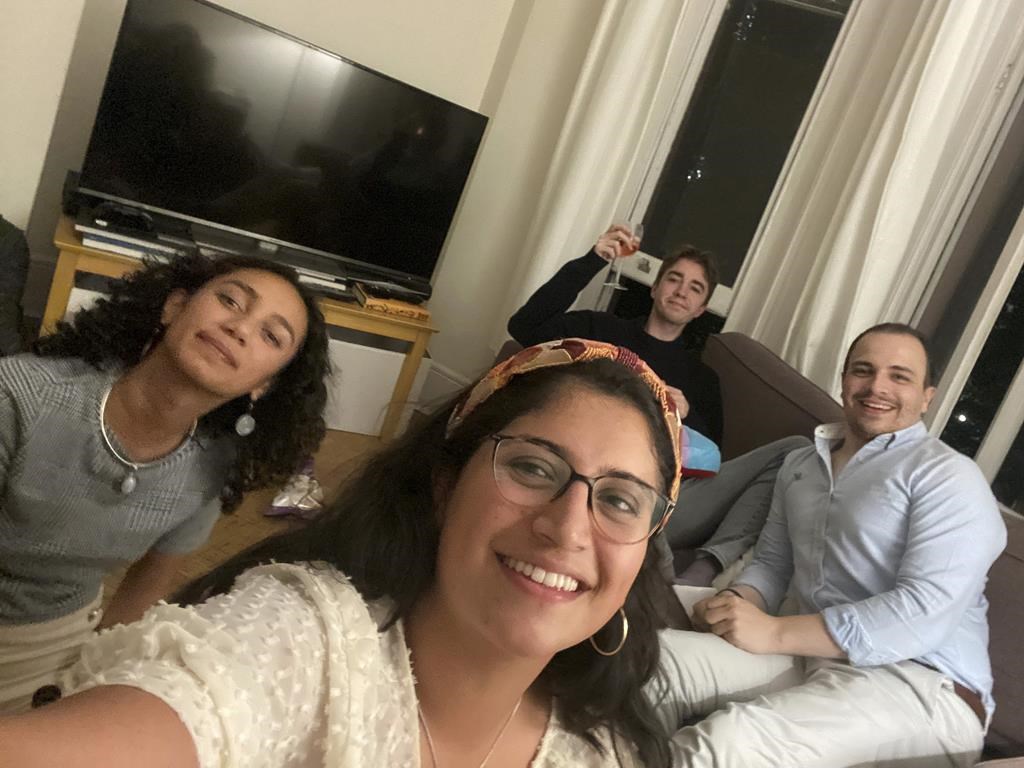Why Gallup Finds That Only 2 in 10 US Employees Name Work as Their ‘Best Friend’
NEW YORK (AP) — Crystal Powers started a new role as remote medical records manager in February 2022. She has yet to meet two of the five people who report to her personally and has found it difficult to connect with her colleagues online.
“I was used to going face-to-face in people’s cubicles and talking to them one-on-one. It just doesn’t translate that well to a remote environment,” said Powers, 42, who lives in Madison, Wisconsin.
According to a June 2022 quarterly Gallup poll, only 2 in 10 U.S. adult workers say they definitely have a “best friend” at work. of 24%, said Gallup workplace and wellbeing researcher Jim Harter. There is no such change for workers aged 35 and over, he said.
Having a best friend at work has become even more important since the dramatic rise in remote and hybrid employment, Harter said.
“We see in the data that, in general, younger people feel more disconnected from their jobs,” he said. “You can potentially attribute some of this to remote work. When they’re less connected to their workplace, they have fewer opportunities to network with other co-workers and develop the kind of friendships they might have had in the past.”
For many workers during the pandemic, particularly parents, educators and frontline workers, such friendships provided social and emotional support at a critical time, Gallup said.
They also benefited employers. Gallup found a strong connection between workers with best friends in the workplace and profitability, safety, inventory control and retention.
Employees who have a beast at work are significantly more likely to engage with customers and internal partners, get more done in less time, support a safe workplace with fewer accidents, and are innovative and share ideas, according to the study.
Karen Piatt has started a new job at a nonprofit medical aid organization just weeks after the pandemic lockdowns began in 2020. She conducted all interviews for the position online and works remotely full-time.
“It’s the first time in my 25-year career that I’ve been hired for a position without meeting the hiring manager in person,” said Piatt, 52, who lives just outside of Seattle. “It took me almost two years to meet my colleagues in person.”
When she finally did it at a retreat last year, “it was really special,” she said. “We hugged and talked like we’d known each other for years. In fact we had it.”
Best friends in the workplace are just one piece of the puzzle when it comes to employee well-being and value for employers, Harter said. Without strong positive feelings for an employer, “you can have friendships at work that are likely to be dysfunctional and are likely to turn into bitch sessions.”
Powers said her team is mostly nearing retirement age. One is younger than her. She is the only manager hired since the pandemic to handle a full-time remote staff. Team building was a challenge.
“They’re not very interested in doing icebreaker-type stuff or things like trivia meetings,” she said.
Most of their employees live about 45 minutes from the office and commuted in before the pandemic. Powers knows her team is having casual, digital gatherings without her. She does bi-weekly check-ins with everyone.
“It was harder than in previous positions to get support for things and gain confidence in me as a manager because they still don’t really know me,” she said.
However, Powers likes to work remotely.
“I’m confident that over time we will develop strategies to work better together with both our peers and our subordinates to make it successful,” she said.
Henry Crabtree, 26, of London, said that when you have work friends, “you don’t just work with each other, you work for each other.”
He was hired in December 2021 into a small marketing team for a software company with employees around the world.
“Seeing each other outside of work, especially when colleagues from other countries are visiting, really helps forge those friendships,” he said.
Harter distinguishes between the level of trust between work friends and casual work friends.
“It’s a lot harder to form close relationships when you’re further away,” he said.
Johnny C. Taylor Jr., President and CEO of the Society for Human Resource Management, cites many benefits of being a work friend from all angles. Employee retention is high on his list.
“Secondly, we found that it promotes harmony in the workplace. I’m not talking about sexual relationships. When you are at work it is in our interest to ensure that family life is calm, peaceful and drama free. From an employee relations perspective, if I’m upset and upset about something, the person sitting next to me who is my best friend can say, ‘Johnny, relax.’”
He, too, distinguishes between close and distant friendships at work.
“If there’s a disagreement between besties, time will usually heal,” Taylor said. “That doesn’t always apply to other friendships.”
Gallup found that workers sometimes need “the OK” from leaders to form close friendships in the workplace. Taylor agrees.
More companies, he said, are actively promoting friendships. His organization, which employs nearly 500 people around the world, is among a growing number of employers who buy lunches for people who invite someone they aren’t close to to dinner in order to make new connections.
“From a diversity, equity and inclusion perspective, we’re trying to bring together people who have different experiences, lived experiences, backgrounds, etc.,” Taylor said. “The idea is that you go to lunch with a stranger and make him a friend.”
___
Find Leanne Italie on Twitter at http://twitter.com/litalie
Leanne Italy, The Associated Press
Don’t miss interesting posts on Famousbio
